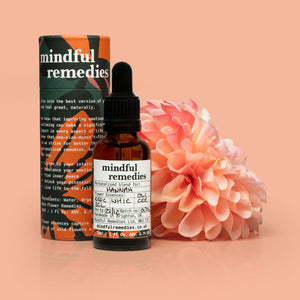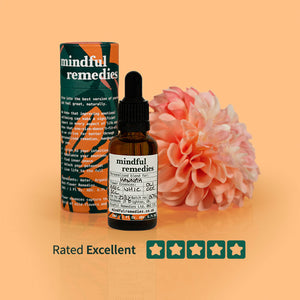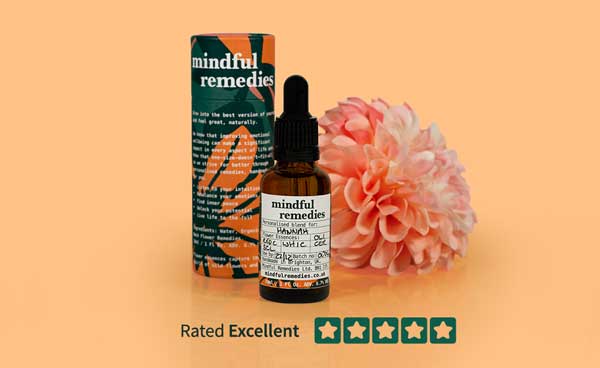your basket
- choosing a selection results in a full page refresh

Mental health issues in teenagers is a serious concern that needs to be addressed by parents, teachers, and health professionals. Mental health issues can manifest into various conditions such as depression, anxiety, panic attacks, eating disorders and substance abuse. Research has shown that mental health problems are on the rise among teens due to an ever-growing array of pressures from school, peers, technology and social media. Not to mention the impact of Covid and lockdowns.
When it comes to adolescents’ mental health needs, parents should not just assume that teens will ‘grow out of it’ or won’t need help until they reach adulthood. It is essential for parents to be aware of the signs and symptoms of mental illness in their children so they can get them the help they need as soon as possible. The earlier a teen gets treatment for a mental illness, the better their chances of responding well to treatments and of achieving full recovery.
It is important for parents and other adults in the lives of teenagers to understand what teenage mental health support is available so they can provide appropriate assistance when needed. Support includes both professional services such as counselling and therapy; informal activities such as peer groups and self-help, plus pharmaceuticals or natural remedies. Parents can also play a key role in providing emotional support to their teen through active listening, setting clear boundaries and offering unconditional love.

There are numerous strategies which can be used to help teenagers with their mental health issues including:
Make sure your teen knows that you are open to talking about difficult topics such as feelings or relationships without judgment or criticism. Parents can take an active role in encouraging this dialogue by expressing interests in their teen’s feelings, reactions, and experiences. An approach that values curiosity over judgment proves more beneficial as a way to reinforce communication rather than discarding it. Such an atmosphere provides teens the space to share their thoughts freely and to receive guidance when needed in order to explore and learn about themselves.
Self care is an important part of helping mental health in adolescence, and it's important for teenagers to take the time to focus on themselves. Practicing some simple self-care activities every day can make a huge difference in mental well-being. Teenagers should start by carving out a few moments for themselves each day for mental break, whether it's listening to music, taking a mental health break with journaling or meditation, or just giving themselves time to relax. Eating healthy meals and snacks, exercising regularly, getting enough sleep and staying hydrated are all wonderful ways to take care of yourself as well. Making sure you have things that bring joy - such as hobbies and interests - is another key factor in keeping mental health balanced and supported.
Teens need strong relationships with family members and other trusted adults who will listen without judgment or criticism while providing emotional support when needed.

It’s important for teens to feel accepted by their peers but this doesn’t mean they shouldn’t strive for more challenging goals either academically or athletically. Showing interest in their achievements helps boost confidence levels which could be beneficial for their emotional wellbeing too.
Too much time spent on phones or computers may lead to a disconnection from real life experiences which are necessary for emotional growth and development during adolescence.
If despite all efforts your teen still seems distressed it might be beneficial to seek professional help from a qualified therapist who specialises in adolescent psychology. You can speak to your GP or get referred to a service such as CAHMs in the UK or Mind are a great charity with lots of resources.
Depending on what your GP suggests, your child may be prescribed pharmaceuticals such as anti-depressants or anti-anxiety medication. It’s important to review all advice and research around any prescriptions and be aware of any side effects. Many parents prefer to go down a natural route first or instead of medication and there are plenty of natural remedies around which can help with issues such as depression and anxiety.
Bach flower remedies were developed in the 1930s by Dr Edward Bach. They are a type of energy medicine and use the vibrational frequencies of plants and flowers to help bring the body into balance. This is achieved through their power to address emotional states such as fear, worry, insecurity, stress and depression. Bach flower remedies have been gaining popularity among adolescents due to their lack of side effects compared with other forms of treatment like medication.
There are 38 different flower essences each designed specifically for specific emotions such as fear, insecurity, over sensitivity, low mood etc… Bach flower remedies are effective in assisting many individuals cope with stress related conditions, teenage anxiety, teenage depression and anger management. They also work well when combined with conventional medications if needed and won’t interact so they can work side-by-side.

Each flower remedy has its own unique combination of healing properties. For example, Impatiens calms an impatient nature while Mimulus helps to face fear or anxiety. When combined together they create a powerful synergistic effect which can be more potent than taking each remedy individually.
Bach flower remedies are taken internally via drops placed under the tongue or diluted in water or juice. They act quickly once taken and there are no side effects associated with them, so they are safe for all ages including babies and pregnant women.
Although it is not clinically proven how these remedies work, many believe it is due to their ability to affect subtle energies within our bodies in order to restore balance as well as restoring harmony between body, mind and spirit. It is believed that when our bodies are out of balance emotionally or physically then we experience negative thoughts which can lead to poor wellbeing; using Bach flower remedies can help bring us back into equilibrium so that we feel better mentally and physically again.
As Bach flower remedies are a natural way of helping emotional wellbeing without side effects, this make them an ideal choice for teenagers who might need some additional support. Teenagers often face difficult times of transition such as starting college or university life away from home or dealing with physical changes at puberty when hormones tend to go haywire! As well as helping teenagers cope better emotionally during transitions in life, these remedies offer an effective way for teens to manage emotions appropriately instead of resorting to destructive behaviours like self-harm or substance abuse which could have further damaging consequences down the line if not addressed properly at this crucial stage in life.
Using these holistic treatments rather than medications could provide young people with a safe alternative method of soothing their mental distress without any risk of dependency forming like you might find with drugs prescribed by doctors – something that’s particularly important given teenage susceptibility towards addiction due to still developing brains at this age range.
In conclusion, there are many resources available today that can assist teenagers struggling with mental health issues however it is essential that adults in teenagers’ lives remain vigilant at all times. Early intervention is key when it comes to helping adolescents manage mental illnesses before they become severe. Adolescents should also remember that seeking professional help does not mean there is something wrong with them but rather serves as an opportunity for growth and understanding themselves better. Finally, Bach Flower Remedies offer a unique solution for those seeking relief from emotional distress without any side effects making it an ideal option for those looking into natural therapies instead.
If you’re interested in trying Bach flower remedies, below is a link to a curated list of Bach flower remedies suited to the typical problems that teens face during this stage of life. Through Mindful Remedies you can create a bespoke blend just for your teen, selecting up to seven remedies in a treatment bottle.

Since 2021, Lucy Edwards, a qualified Bach Flower Practitioner and the driving force behind Mindful Remedies, has connected with clients across the world. Crafting thousands of personalised remedies, Lucy has supported individuals' emotional wellbeing, shipping remedies to far-flung places like the USA, Thailand, and Australia.
Lucy is readily available for conversations, offering personalised advice to guide you on the path to holistic wellness. It's important to note that she's not only qualified but also registered with the Bach Centre, ensuring that every consultation and remedy adheres to Dr Bach’s original guidelines for expert care and efficacy.
Exclusive pricing 20% off your first subscription order and 5% off all future orders
VIP treatment Receive personalised advice from Lucy, free gifts & 15% off gift vouchers
Easy to manage Edit remedy, change schedule, pause or cancel at any time
Exclusive online workshops Access to workshops focusing on emotional wellbeing, guided by Lucy
Early access to new products Be the first to try out new remedies or wellness products, before anyone else



